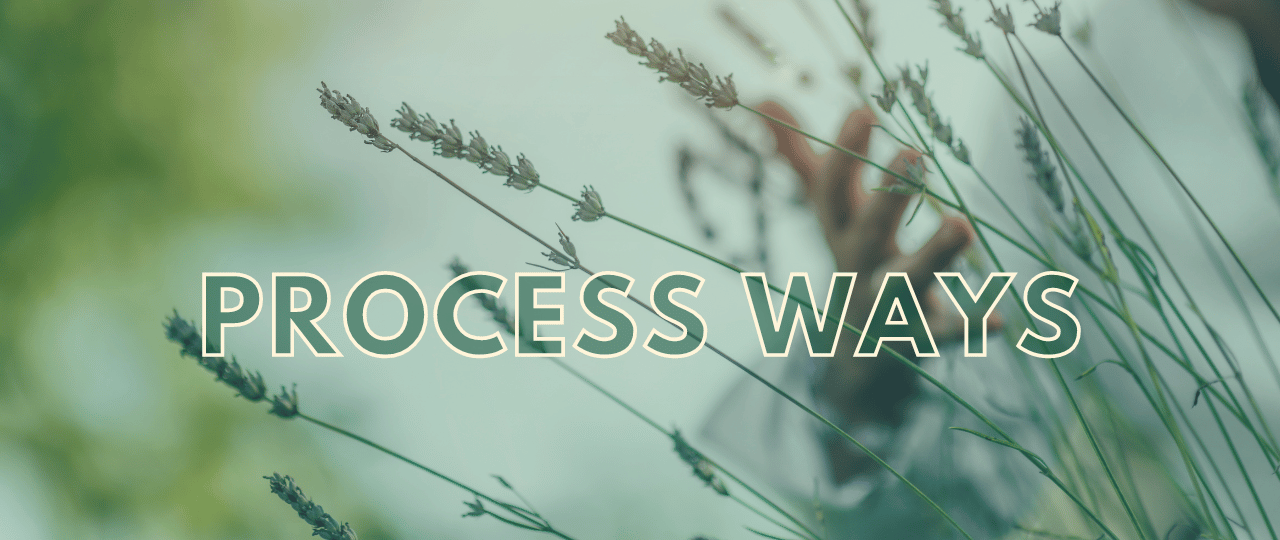
Process Ways in an Organic Cosmos
Process & Faith draws its inspiration from the writing of Alfred North Whitehead and other thinkers who have contributed to what is now called “process philosophy” and “process theology.” Process philosophy and theology offer a comprehensive vision of the world and better hopes for the world, inviting a sense of wonder and a recognition of the sacred, based on the interconnectedness, intrinsic value, and beauty present in all living things. This vision has been incredibly useful for many different religious and spiritual communities, including those who understand themselves as spiritual independents.
For us the process approach to life is a way of understanding, experiencing, and living in the world that can be internalized, deepened, and enriched from many different points of view.
Ways of Understanding
Process ways of understanding the world emphasize wholeness and dynamism, understanding the world as an organism rather than as a mechanism. Nature is alive, and everything in it has some degree of inner and outer experience. We feel the world and respond to it.
Process ways of understanding the cosmos also stress the interconnectedness of everything – nothing stands alone as an isolated individual. In this view, we live within, and are formed by, a web of relationships. As we are learning in quantum physics, biology, and ecology, everything is interdependent, part of a system. Therefore, we can happily say that we belong to the world and are never alone. In this coherent cosmos, religion and science, politics and economics, are not at odds but are interwoven.
In a process view, all beings and things in our world are made up of events – moments of experience that come into being and then pass away. Everything is in process, dynamic, and evolving and our world is marked by continuous creativity and novelty. At the same time, there is order, meaning, and purpose.
Individuals seek their own enjoyment, choose from possibilities, and actualize real value in the world. Actions based on separation and un-wholeness often result in suffering, but we are always free to choose to pursue loving connection and community. We can choose to create Harmony, Peace, and Beauty.
Ways of Experiencing
Process ways of experiencing the world are receptive to the world in sympathetic ways. They are also whole-making – they expand our awareness of the sacredness of the world, its beauty, and its meaning, and then facilitate our own wholeness. Through whole-making practices, we experience unity – unity of mind and body, body and world, personal and transpersonal. We may even encounter that original mystery that some traditions call God.
Through process practices, including compassion, devotion, living in the present moment, contemplation, play, gratitude, prayer, and dream work, we come to see ourselves as selves-in-process who can respond in novel and creative ways to the flow of life. We come to understand that thinking and feeling are fully embodied and learn of how our minds affect our bodies and vice versa. We learn that even past pain can be healed and positively transformed through such practices.
Process ways of experiencing help us to feel the world more deeply, recognize its beauty and value, and even to fall in love with it.
Ways of Living
Process ways of living seek to foster wellbeing and creative transformation. Living beings respond to the worlds they experience and, in responding, have creativity of their own. They co-create the world. In the case of human beings, this creativity can be constructive or destructive, self-giving or selfish, whole-making or whole-destroying. Those destructive actions hurt people, other animals, and the earth itself.
We seek healthy relationships and the common good as well as the flourishing of individuals. Sometimes this involves appreciating the world as it is, in its poignancy and beauty, and sometimes as nurturing various kinds of creative transformation that yield greater happiness and harmony for all.
Process ways of living come from a soulful place of seeing the world and everything in it as having meaning, value, and even as sacred. In this way of living, everything matters. Therefore, we cannot coercively exert power over others. We don’t force; we invite.
We approach the world with curiosity and embrace lifelong learning and growth. As innovative beings in a dynamic world, we deeply appreciate aesthetics and artistic expression, knowing that we are capable of creative living.
In process living, the particular is important. Real value is achieved by individuals and is then woven into the whole fabric of life, benefitting all. At the same time, we recognize that the world is complex, with contrasting elements that may cause us pain. Even in the midst of such contrasts, we can pursue goodness and relationship.
Process living appreciates the ongoing dance between theory and practice, or contemplation and action. Our good ideas must be made real in the world, and often we arrive at our very best ideas through practice itself. We seek to build lives that are marked by deep respect and care for others as well as ourselves. And so, our loyalty is to the whole world, expanding beyond our immediate families, communities, and nations to include all beings and the living Earth itself. Many of us sense that the world as a whole – the planet Earth and its galactic horizons – is enfolded within a larger wholeness, a greater life, God, in whose life the universe lives and moves and has its being. This larger life is within each of us as a lure toward wholeness and beyond all of us as the divine milieu of what is and can be.
